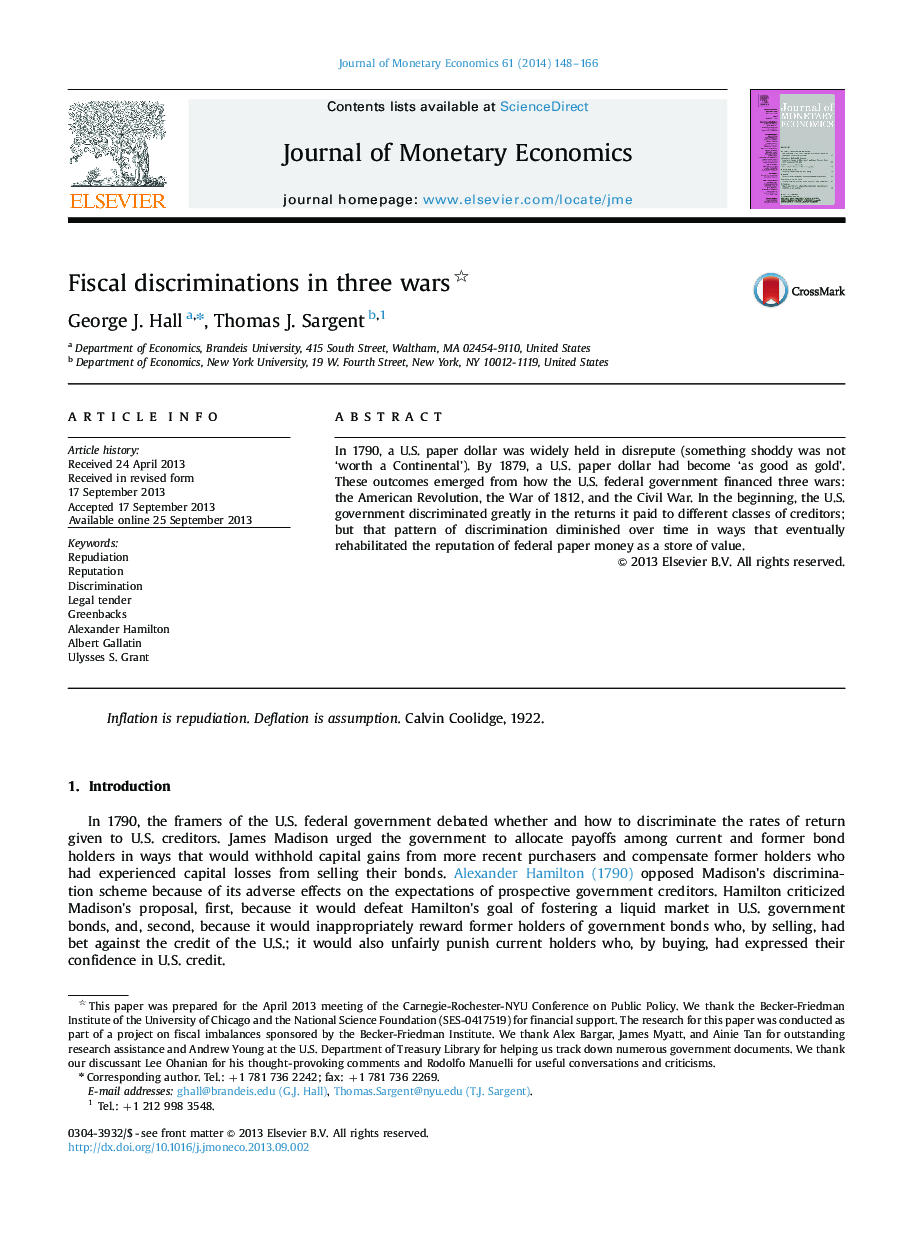| Article ID | Journal | Published Year | Pages | File Type |
|---|---|---|---|---|
| 966897 | Journal of Monetary Economics | 2014 | 19 Pages |
Abstract
In 1790, a U.S. paper dollar was widely held in disrepute (something shoddy was not 'worth a Continental'). By 1879, a U.S. paper dollar had become 'as good as gold'. These outcomes emerged from how the U.S. federal government financed three wars: the American Revolution, the War of 1812, and the Civil War. In the beginning, the U.S. government discriminated greatly in the returns it paid to different classes of creditors; but that pattern of discrimination diminished over time in ways that eventually rehabilitated the reputation of federal paper money as a store of value.
Keywords
Related Topics
Social Sciences and Humanities
Economics, Econometrics and Finance
Economics and Econometrics
Authors
George J. Hall, Thomas J. Sargent,
